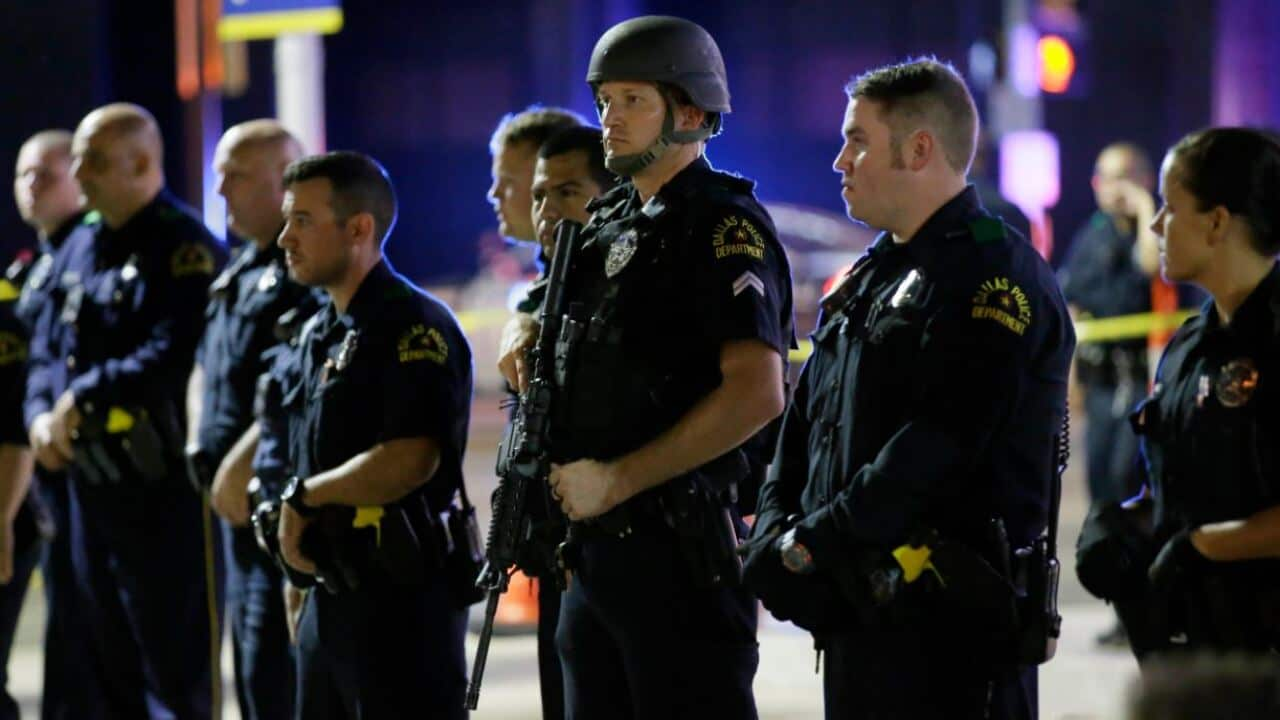The protests in the United States against the killing of black men by police have highlighted the role social media video apps in recording the incidents.
Both shootings, which garnered widespread attention and sparked protests, were filmed and shared online.
Alton Sterling was shot in Louisiana after being pinned to the pavement by two white officers and the incident was captured by a witness who shared the video on Instagram.
And just days later, Diamond Reynolds live streamed the aftermath of the fatal shooting of her boyfriend Philando Castile on Facebook.
According to Anthony Kelly from the Flemington-Kensington Legal Centre in Melbourne, recording an incident with law enforcement does provide an extra level of evidence.
Mr Kelly has worked with members of Melbourne's African communities on race-based legal cases.
The centre represented a group of young African-Australian men who alleged Victoria Police were targeting them simply because of their race, rather than their actions.
These so-called racial profiling cases ran from 2008 to 2013, and led to Victoria Police overhauling the way in which they engage with migrant communities.
He said some of his clients now record interactions with police.
"We do advise people to be very careful if they're deciding to film the police," Mr Kelly told SBS News.
"A lot of people are using it for a safety and accountability tool.
"It can provide incredibly valuable evidence later on if a complaint is made or any sort of legal action is made.
"But it also can escalate tensions if it's treated that way. People do have to be careful when filming police but they do have a right to [film] in Australia."
Mr Kelly said people were within their rights to film police if they had been stopped or were being questioned.
"What's important during a police incident is not to prevent or hinder police from going about their duties when you're filming or photographing and so what we advise is for people to record from a safe distance," he said.
But he said police don't have the right to confiscate a phone even when they notice they are being recorded.
"We've had quite a few incidents where police have either seized or attempted to seize phones that they have noticed have been filming them and that's been a problem quite often in the past," he said.
Mr Kelly said many of these videos have been used successfully as evidence in court.
He said his legal centre had handled several cases which involved mobile phone footage as evidence.
But he said it does have its limitations.
"It mightn't capture the entire incident," Mr Kelly said.
"It might be poorly recorded or too shaky and very difficult to see exactly what's happening."
However, Mr Kelly it was a tool that wasn't going away anytime soon, with more and more people hitting the record button.
"I think citizens in general are getting far more aware of the importance of filming incidences that they see are concerning for accountability outcomes," he said.
"It's definitely happening more and more, but it's limited like any form of recording."













